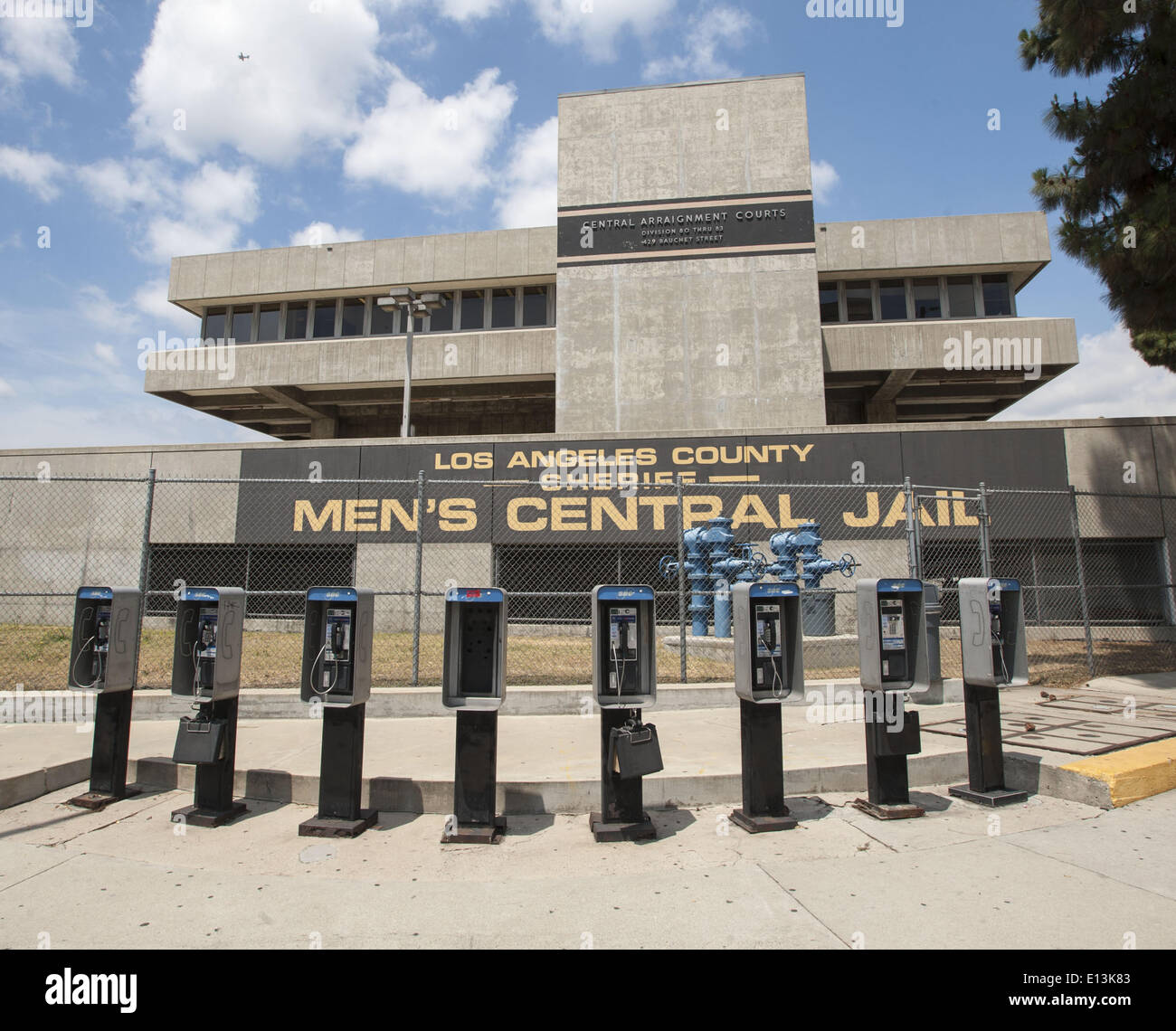Los Angeles, the City of Angels, is home to millions of stories—and some of them are hidden behind bars. If you're searching for inmates in Los Angeles, you've come to the right place. Whether it's for personal reasons, legal inquiries, or simply curiosity, finding someone who’s incarcerated can be a daunting task. But don’t worry—we’ve got your back. In this article, we’ll dive deep into the world of inmate searches in LA, breaking down everything you need to know.
From understanding how the system works to using reliable tools that won’t leave you scratching your head, this guide is packed with actionable tips. We’ll also touch on the importance of privacy, ethics, and why accuracy matters when navigating these waters. So buckle up, because we’re about to demystify the process of inmate search in one of America’s most vibrant cities.
Let’s face it—life throws curveballs, and sometimes those curveballs land people behind bars. Whether it’s a loved one, friend, or someone connected to a legal matter, knowing how to locate inmates in Los Angeles County is crucial. This article isn’t just about giving you answers; it’s about empowering you with the knowledge to take charge of whatever situation you’re dealing with.
- Richard Dane Witherspoon The Man Who Redefined Success In Modern Entertainment
- Nc Skip The Games The Ultimate Guide To Leveling Up Your Dating Game
What You Need to Know About Inmates Search Los Angeles
Before diving headfirst into the nitty-gritty of inmate searches, let’s break down the basics. Los Angeles County operates one of the largest jail systems in the United States. With multiple facilities spread across the county, tracking down an inmate isn’t as straightforward as typing their name into Google. But hey, that doesn’t mean it’s impossible!
Here’s what you should keep in mind:
- Los Angeles County Jail System: The system includes several detention centers, such as Men’s Central Jail, Twin Towers Correctional Facility, and Century Regional Detention Facility (CRDF).
- Inmate Information: To conduct a successful search, you’ll typically need the person’s full legal name and date of birth. Some systems even allow partial matches if you’re unsure about spelling.
- Legal Considerations: Always ensure that your search complies with local laws and regulations. Misusing inmate data can lead to serious consequences.
Remember, the goal here isn’t just to find someone—it’s to do so responsibly and ethically. Now that we’ve covered the basics, let’s move on to the meat of the matter.
- Unlocking The Secrets Of Lister Crawler The Ultimate Guide
- Joyce Vance The Remarkable Journey Of A Legal Powerhouse
How to Conduct an Effective Inmate Search in Los Angeles
Conducting an effective inmate search requires a mix of patience, persistence, and the right resources. Luckily, Los Angeles County offers several official tools to help you along the way. Here’s how you can get started:
Using the LA County Sheriff’s Department Inmate Information System
The LA County Sheriff’s Department maintains an online database called the Inmate Information System. This tool is free to use and provides up-to-date information on inmates currently housed in county jails. Simply enter the person’s first and last name, and voila—you’ll see their booking details, location, and estimated release date.
But wait—there’s more! The system also gives you access to mugshots, charges, and bail amounts. It’s like having a personal detective at your fingertips. Just remember to double-check the information before taking any action.
Alternative Resources for Inmate Searches
While the LA County Sheriff’s Department system is the go-to option, there are other resources worth exploring:
- Public Records: Depending on the case, public records might provide additional insights into an inmate’s status.
- Third-Party Databases: Websites like InmateSearch aggregate data from various sources, making it easier to locate individuals across jurisdictions.
- Legal Counsel: If you’re involved in a legal matter, consulting with an attorney can save you time and hassle.
Just keep in mind that third-party databases may charge fees or require subscriptions. Always verify the credibility of the platform before sharing sensitive information.
Why Privacy Matters in Inmate Searches
Privacy is a big deal when it comes to inmate searches. While public records are meant to promote transparency, they also raise ethical questions about consent and misuse of personal data. That’s why it’s essential to approach this process with respect and caution.
Here are a few tips to protect yourself and others:
- Use secure connections when accessing online databases.
- Limit the amount of information you share publicly.
- Respect the rights of the individuals involved, even if they’re incarcerated.
At the end of the day, privacy isn’t just about protecting yourself—it’s about fostering trust and accountability in a world where data breaches seem to happen every other week.
Common Misconceptions About Inmate Searches
There’s a lot of misinformation floating around about inmate searches in Los Angeles. Let’s bust some of those myths:
Myth #1: All Inmate Data is Public
While many inmate records are publicly available, not everything is fair game. Certain details, such as mental health records or medical information, may remain confidential under state and federal laws.
Myth #2: You Can Only Search by Name
Wrong! Many systems allow you to search by booking number, date of birth, or even physical descriptions. This flexibility makes it easier to locate inmates, especially if you’re unsure about their legal name.
Myth #3: Inmate Searches Are Always Free
Not necessarily. While official government databases are usually free, third-party platforms often charge fees for premium features. Be sure to read the fine print before committing to any service.
By separating fact from fiction, you’ll be better equipped to navigate the complexities of inmate searches in Los Angeles.
Statistical Insights: The Reality of Incarceration in LA
Los Angeles County has one of the highest incarceration rates in the country. According to recent statistics, over 18,000 individuals are housed in county jails on any given day. These numbers highlight the pressing need for reform and better support systems for both inmates and their families.
But what does this mean for you? Understanding the broader context of incarceration in LA can help you approach inmate searches with empathy and understanding. After all, every number represents a real person with a story worth hearing.
Legal Implications of Inmate Searches
When conducting an inmate search, it’s crucial to stay within the bounds of the law. Unauthorized access to confidential information can result in fines, lawsuits, or even criminal charges. To avoid trouble, follow these guidelines:
- Only use authorized platforms and databases.
- Respect the privacy rights of all parties involved.
- Consult with legal professionals if you’re unsure about the legality of your actions.
By staying informed and vigilant, you can protect yourself and others from potential legal pitfalls.
Top Tips for Successful Inmate Searches
Ready to put your newfound knowledge into practice? Here are our top tips for conducting successful inmate searches in Los Angeles:
- Start with the LA County Sheriff’s Department Inmate Information System—it’s reliable and easy to use.
- Double-check the spelling of names and dates of birth to avoid false positives.
- Keep detailed records of your searches for future reference.
With these strategies in your arsenal, you’ll be well-prepared to tackle even the trickiest inmate searches.
Real-Life Stories: Personal Accounts of Inmate Searches
To bring this topic to life, let’s hear from real people who’ve navigated the world of inmate searches in Los Angeles. From families reunited to legal battles resolved, these stories highlight the power of information and determination.
Take Jane Doe, for example. After months of searching, she finally located her brother in a facility she never knew existed. Her story is a testament to the importance of persistence and resourcefulness in inmate searches.
Conclusion: Taking Action on Your Inmate Search Journey
Searching for inmates in Los Angeles doesn’t have to be a daunting task. By leveraging the right tools, respecting privacy, and staying informed, you can navigate this process with confidence. Whether you’re looking for a loved one or investigating a legal matter, the key is to remain patient and persistent.
So what are you waiting for? Take the first step today and explore the resources outlined in this article. And don’t forget to share your experiences in the comments below—we’d love to hear how this guide helped you on your journey.
Table of Contents
- Inmates Search Los Angeles: Unlocking the Truth Behind Bars
- What You Need to Know About Inmates Search Los Angeles
- How to Conduct an Effective Inmate Search in Los Angeles
- Using the LA County Sheriff’s Department Inmate Information System
- Alternative Resources for Inmate Searches
- Why Privacy Matters in Inmate Searches
- Common Misconceptions About Inmate Searches
- Myth #1: All Inmate Data is Public
- Myth #2: You Can Only Search by Name
- Myth #3: Inmate Searches Are Always Free
- Statistical Insights: The Reality of Incarceration in LA
- Legal Implications of Inmate Searches
- Top Tips for Successful Inmate Searches
- Real-Life Stories: Personal Accounts of Inmate Searches
- Conclusion: Taking Action on Your Inmate Search Journey



Detail Author:
- Name : Albert Schmidt PhD
- Username : ljohnson
- Email : schuppe.august@waelchi.com
- Birthdate : 1986-10-02
- Address : 37013 Blanda Turnpike Apt. 426 Juliusmouth, AL 39348-9172
- Phone : +1-870-859-2891
- Company : Wunsch Ltd
- Job : Camera Operator
- Bio : Fugiat error sit doloremque excepturi natus velit reiciendis tenetur. Explicabo molestiae eaque ut harum tenetur. Illo a qui magni accusantium.
Socials
instagram:
- url : https://instagram.com/meda2249
- username : meda2249
- bio : Voluptatum et beatae voluptas voluptas. Dicta perferendis eligendi qui modi et expedita voluptatum.
- followers : 5052
- following : 453
facebook:
- url : https://facebook.com/meda.hudson
- username : meda.hudson
- bio : Aliquam quo quia quasi alias adipisci ullam quasi sunt.
- followers : 2003
- following : 2003
linkedin:
- url : https://linkedin.com/in/meda.hudson
- username : meda.hudson
- bio : Blanditiis ut vel est consequatur ut.
- followers : 4979
- following : 1580